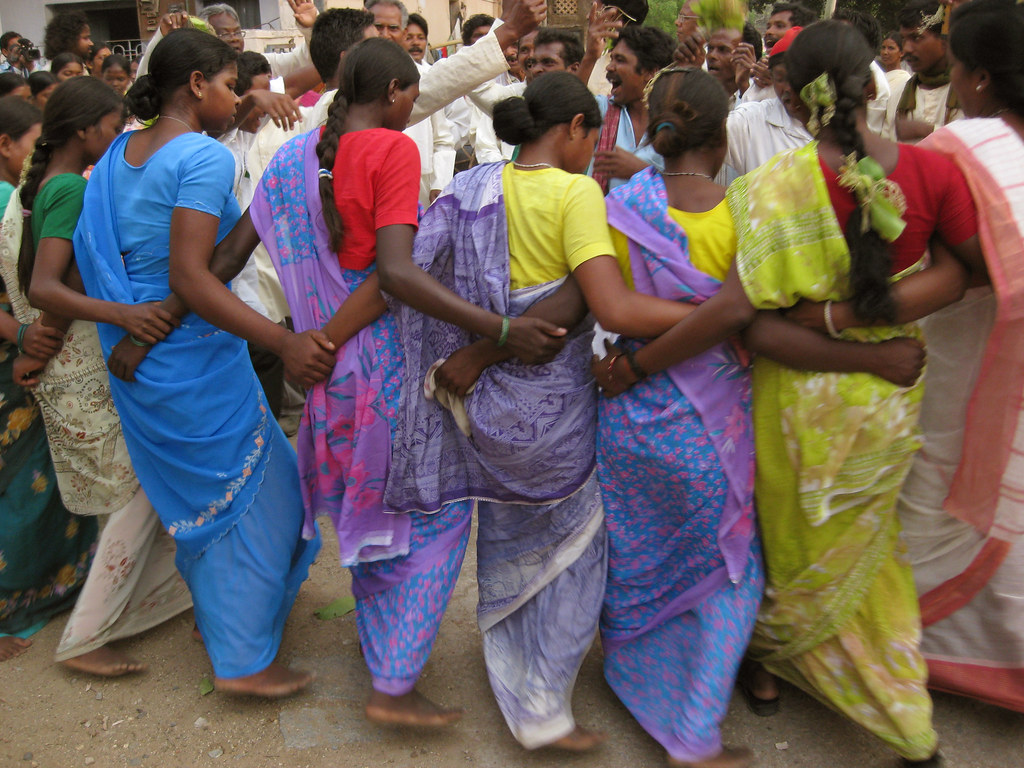The struggle of Sri Lankan adivasis for their rights
The country's most marginalised peoples continue to struggle for recognition. Despite the UN call in 1996 and the 2007 Declaration on the Rights of Indigenous Peoples, governments have failed to provide a legal and policy framework to protect this community. The establishment of the Maduru Oya National Park has devastated their habitat, forcing them to give up millennia-old traditions and a self-sufficient life maintained for generations.
Colombo (AsiaNews) - Despite the UN's solicitation of Sri Lanka in 1996, the indigenous peoples of Sri Lanka, referred to by the Hindi term adivasi, have lived marginalised, without rights or constitutional or legislative recognition.
Subjected to deception by every government. According to community leader Uruwarige Wannila Aththo, immense destruction of their habitat has been caused under the Mahaweli Development Scheme (the largest irrigation-based agricultural development programme in Sri Lanka).
In 1996, the United Nations demanded that Sri Lanka respect the rights of the indigenous inhabitants following a speech by the leader to the UN Working Group on Indigenous Peoples in Geneva; in this he demanded that the community be allowed to ‘return to our traditional land, in particular Maduru Oya National Park’. He also argued about the legal status of the Sri Lankan Constitution that guarantees the rights of indigenous peoples.
The relocation of this community away from their homelands and the prohibition of access to their forests, where they lived in harmony with nature, maintaining age-old customs, traditions, rituals and practices, has led them to face serious challenges.
They are unable to return to their self-sufficient lifestyle maintained for generations. Because of the displacement, they have had to abandon their medical knowledge and treatments implemented through a combination of plant and animal substances, ritual treatments and witchcraft passed down orally for generations.
However, the question of whether adivasis are entitled to a favourable socio-economic and political framework to enjoy these basic rights remains valid, as they face more challenges and are more vulnerable than other communities in establishing themselves as citizens with equal rights.
The United Nations has internationally recognised the rights of indigenous peoples around the world through the United Nations Declaration on the Rights of Indigenous Peoples (UNDRIP), adopted in New York on 13 September 2007, with a strong call on Member States to provide effective mechanisms for the prevention and redress of actions that have the purpose or effect of depriving them of their ethnic identity, dispossessing them of their lands and resources, and discriminating against them on racial or ethnic grounds.
According to the fundamental rights enshrined in Chapter III of the country's Constitution, one must have the ‘right to equality, freedom of occupation and movement’.
Environmentalists Rajitha Wijesinghe and Dushni Malalasekara, who have been working with the Adivasi community for decades to safeguard the rights of indigenous communities, informed AsiaNews that ‘in November 1983, the government turned their forest land into Maduru Oya National Park, preventing them from hunting and even collecting bee honey, and pushed them into Mahaweli's “System C”.
The UN then urged the government to ‘cease all acts of repression’. ' The resolution was sent to then President Chandrika Bandaranaike Kumaratunga. For 17 years since the adoption of UNDRIP in 2007, Sri Lanka has been unable to adopt a national legal or policy framework to implement the laws.
Even the provisions of the 1989 Indigenous and Tribal Peoples Convention (No 169) have not been adopted into the Sri Lankan legal or policy framework,' they pointed out.
The Adivasi leader says: ‘I attended the human rights conference in Geneva in 1996 and presented our problems. At the conference, 136 countries signed in favour of finding solutions for our problems. Since an agreement was signed, I thought things would go well. The agreement was signed between me and the Wildlife Conservation Authority, which allowed us to fish and hunt with traditional methods in specified basins, but did not mention ‘specified basins’. Maahitiya, Ulhitiya, Kadupahara and Kandeganwila are the basins available, but we were not informed which of them were accessible because the agreement did not specify this. We were misled and prevented from accessing these places'.
07/02/2019 17:28
12/02/2016 15:14
11/08/2017 20:05







.png)










